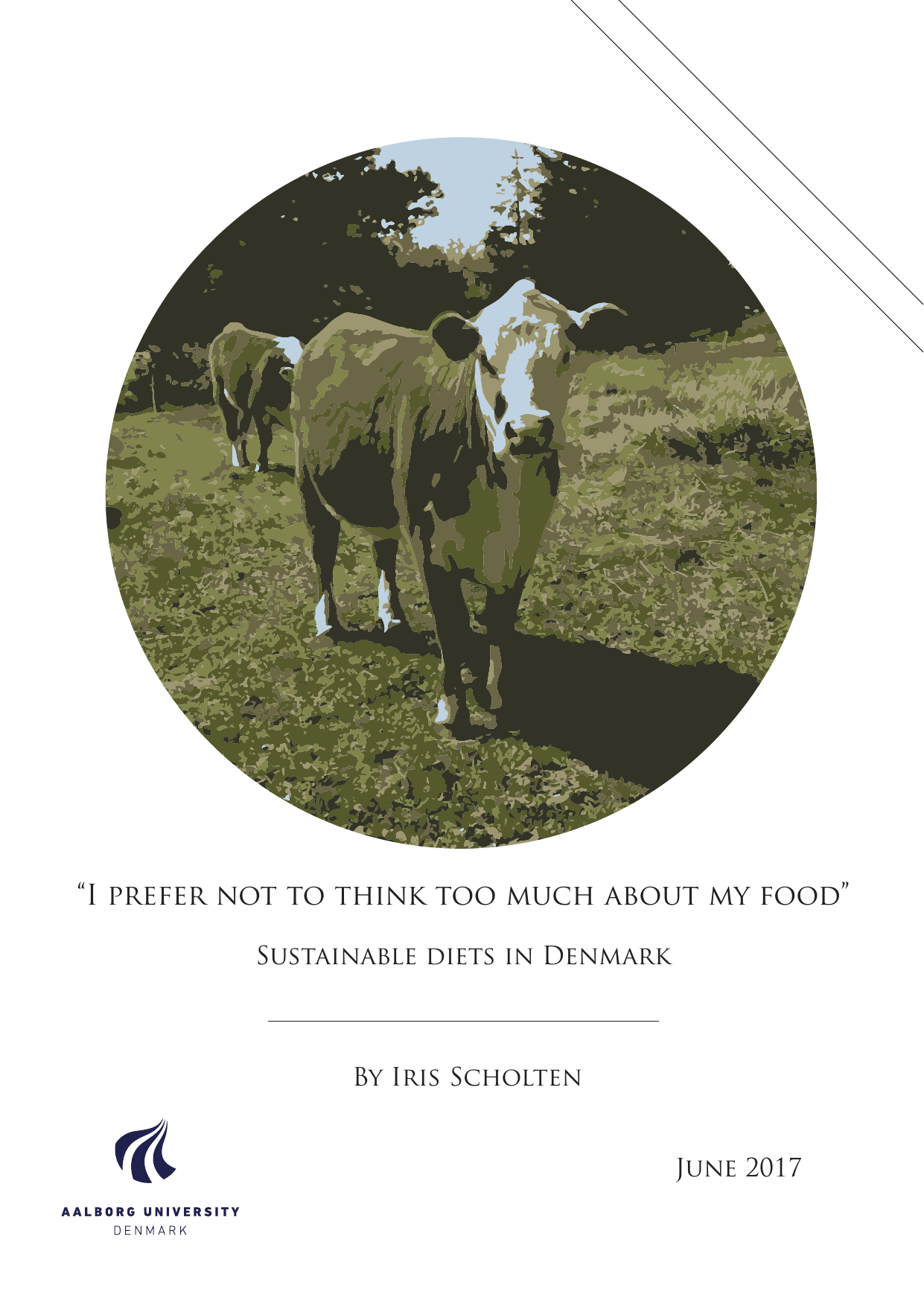
"I prefer not to think too much about my food": Sustainable diets in Denmark
Author
Term
4. term
Education
Publication year
2017
Submitted on
2017-06-02
Pages
95
Abstract
The aim of this study was to identify values in the eating pattern of Danish youth (youth between 18 and 30 years old) and set up requirements for developing a possible technology or service which inspires people to change to a sustainable diet. The theory of moralising technology by Peter-Paul was used to describe the role of technology and its possible unintended consequences. Additionally, the theory of moralising technology inspired the use of the grounded theory, the user-centred design approach, and interaction design which have been used as an inspiration for the data collection, data analysis, and the design of the requirements. Empirical data was collected through participatory observation at a local voluntary food share event, workshops, expert interviews, and casual conversations with young Danes. This study found three main requirements, namely: the technology or service should be (1) in accordance with the users‟ values, (2) morally responsible, and (3) motivational. Different values were discovered in the eating pattern of the Danish youth, including: (cultural) habit, taste, price, health, simplicity and nutrition. Motivations to make a diet change were often related to health reasons, influence of the social circle, and environmental reasons.
Keywords
Documents
